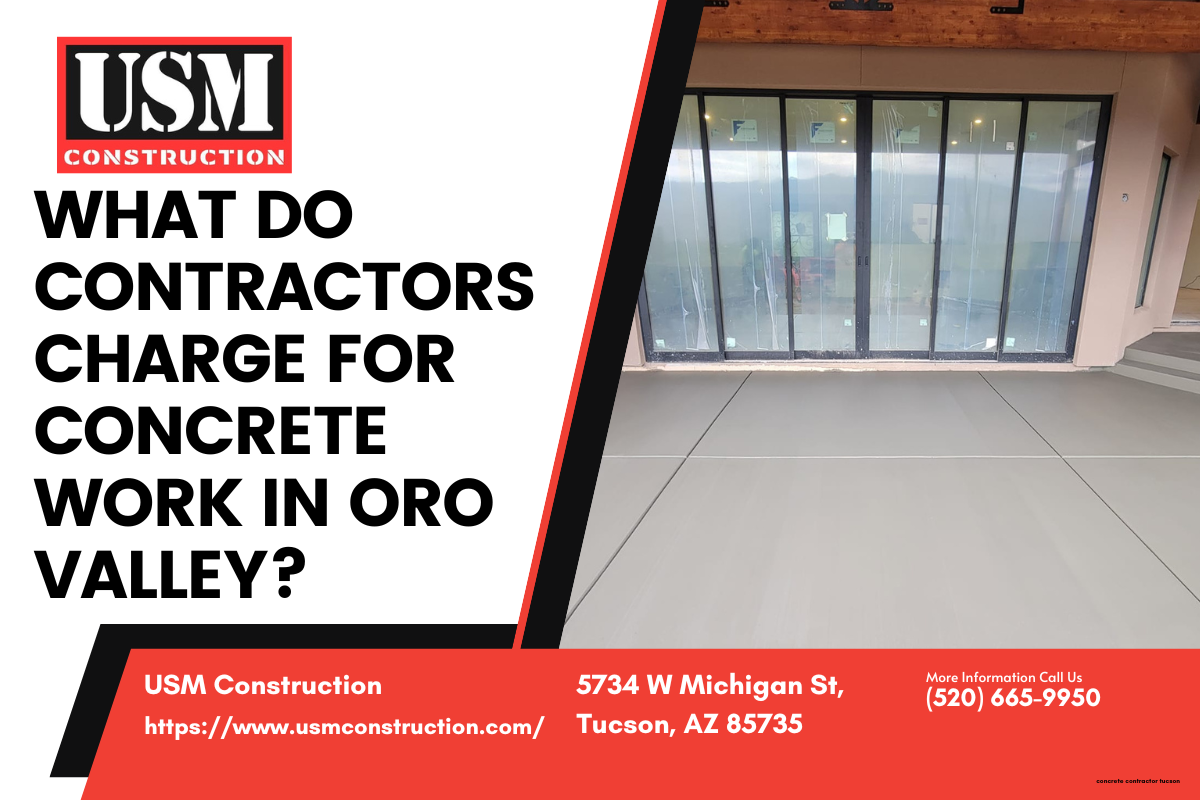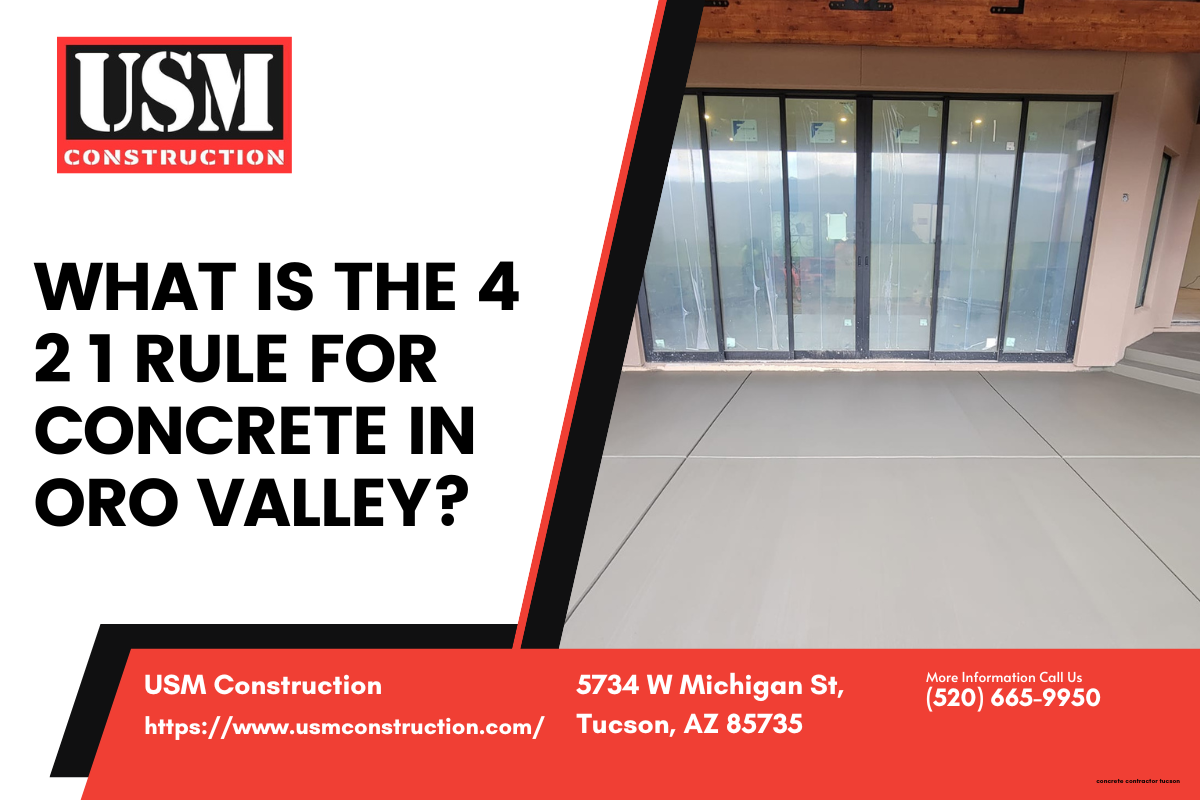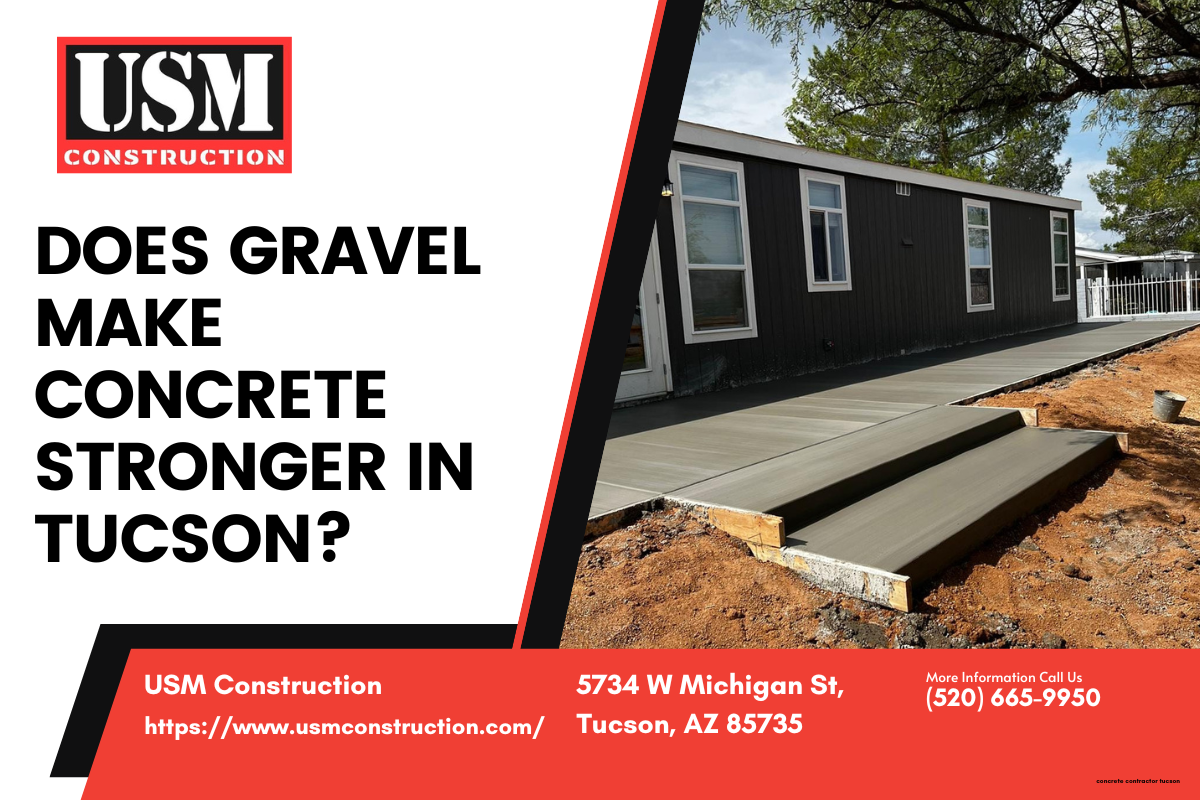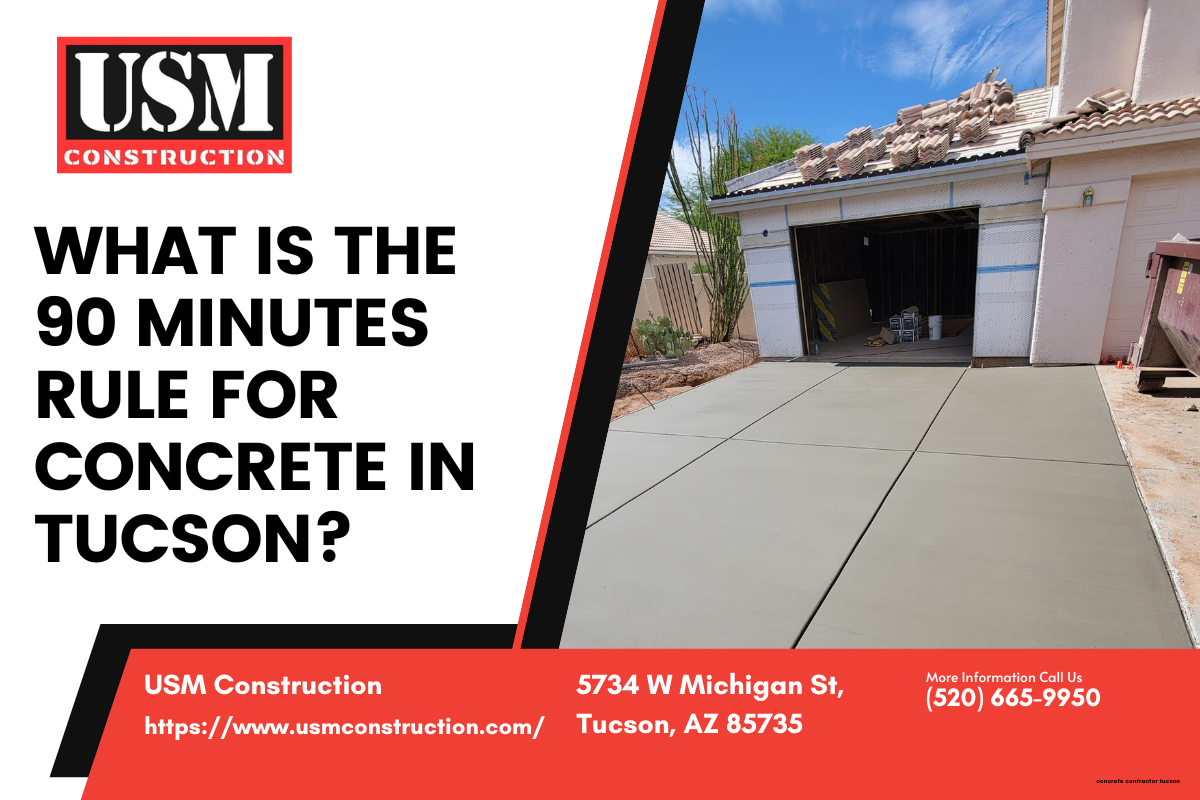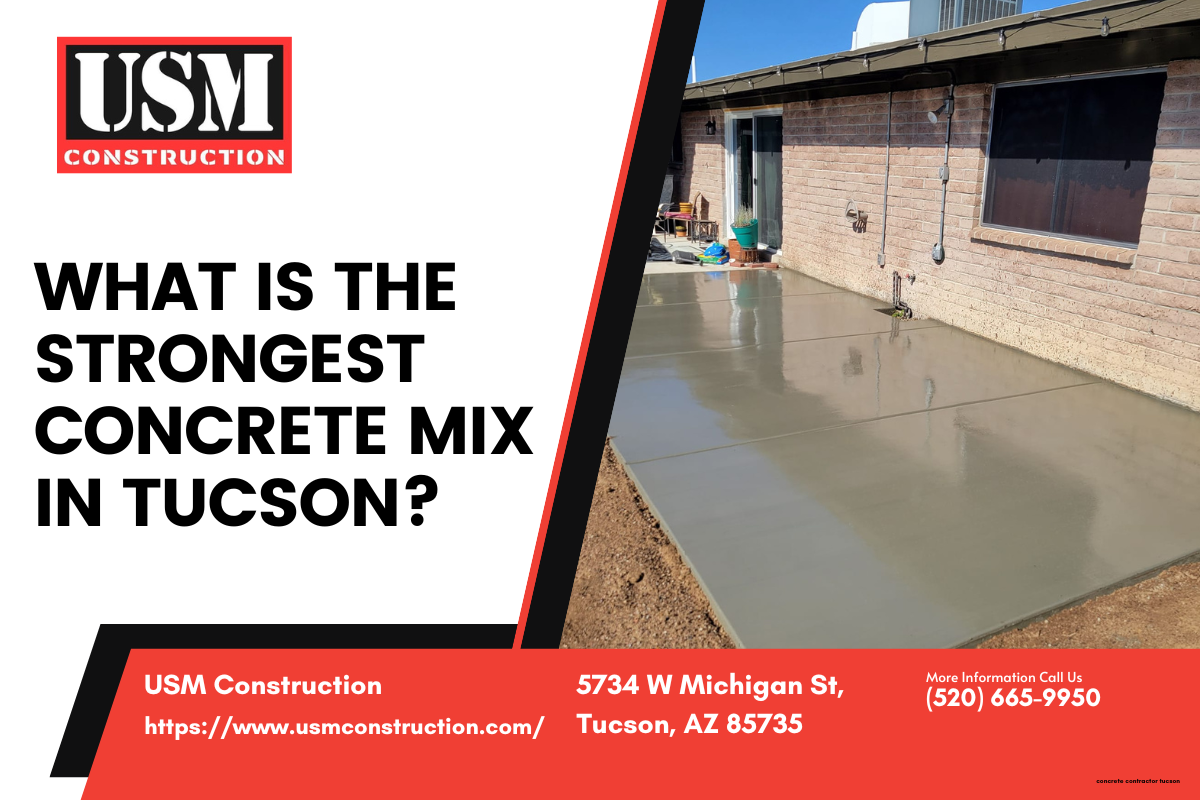TABLE OF CONTENTS
Understanding contractor charges for concrete work in Oro Valley goes beyond a simple square-foot price; costs vary significantly based on the project type (from driveways to foundations), material choices, and necessary site preparation, with typical projects ranging from $8 to $20 per square foot. This price encompasses not just the concrete itself, but the skilled labor, specialized equipment, and crucial prep work that ensure a durable, long-lasting final product. The final price tag depends on the complexity, size, and finish of your specific project.
Beyond the square foot: The core components of concrete pricing
When you receive a quote for concrete work, it’s a comprehensive figure that bundles several critical components. Homeowners often focus on the per-square-foot number, but a professional estimate reflects a detailed breakdown of materials, labor, and site preparation. Understanding these elements is key to appreciating the value behind the price and ensuring you’re comparing quotes on an equal footing. A lowball offer might cut corners on one of these essential areas, leading to premature failure and costly repairs down the road. Let's break down the three pillars of concrete project costing.
Materials: The foundation of your project's cost
The most obvious material is the concrete itself, typically priced by the cubic yard. However, the cost varies based on the required strength, measured in pounds per square inch (PSI). A simple patio might use a standard 3000 PSI mix, while a driveway supporting heavy vehicles needs a stronger, more expensive 4000 PSI mix. Beyond the concrete, the price includes reinforcement materials like steel rebar or wire mesh, which provide tensile strength and prevent cracking. Finally, the cost of lumber and stakes for building the forms that hold the wet concrete in place is also factored into the material budget.
Labor: The skill and effort behind a flawless finish
Labor is a significant portion of any concrete project, often representing the largest single expense. This is where the expertise of a professional crew truly shows its value. Labor costs for a concrete driveway can range from $2 to $10 per square foot and can account for as much as half of the total project expenses. This fee covers a wide range of tasks: the initial excavation and grading, precisely setting up the formwork, pouring and leveling the concrete, and the meticulous finishing process. The type of finish—from a simple broom finish to a complex stamped or stained pattern—dramatically impacts labor hours and, therefore, the final cost.
Site preparation: Setting the stage for durability
What happens before the concrete truck arrives is just as important as the pour itself. Proper site preparation is non-negotiable for a lasting installation. This phase can include demolishing and hauling away an old patio or driveway, excavating soil to the correct depth, and carefully grading the area to ensure proper drainage. Perhaps the most critical step is laying and compacting a sub-base of gravel. This stable foundation prevents the concrete slab from shifting, settling, or cracking due to ground movement or frost heave, ensuring the longevity of your investment.
Concrete cost by project type: From driveways to foundations
While the average cost of $8 to $20 per square foot is a helpful starting point, the specific type of project is the biggest determinant of where your final cost will land within that range. A simple, flat walkway will naturally cost less per square foot than an engineered foundation with deep footings. Each application has unique requirements for thickness, reinforcement, and labor, all of which are reflected in the price. Below, we explore the typical cost considerations for the most common residential concrete projects.
Concrete driveways
A concrete driveway is a significant investment that adds curb appeal and functional value to your home. Given the need to support thousands of pounds of vehicle weight, driveways require a thicker slab (typically 4-5 inches), a strong concrete mix, and robust reinforcement. According to NerdWallet, the cost for installing a concrete driveway typically falls between $8 and $20 per square foot, including labor. This puts the national average for a standard driveway at just under $6,500. While the upfront cost is higher than asphalt, the return on investment is substantial; with proper maintenance, a concrete driveway can last as long as 30 to 40 years.
Patios and walkways
Patios and walkways are often more about aesthetics than heavy-duty function. While they don't require the same thickness as a driveway, their costs can be similar or even higher on a per-square-foot basis. This is because these projects often involve more intricate designs, curves, and decorative finishes. Stamped concrete that mimics stone or brick, integral color, or acid staining all require additional materials and highly skilled labor, which increases the price. The smaller scale of a walkway can also lead to a higher square-foot cost compared to a large driveway, as mobilization and setup costs are spread over a smaller area.
Concrete slabs and foundations
This category covers a wide range of structures, from a simple slab for a shed to a complex, load-bearing foundation for a home addition. A basic slab-on-grade for an outbuilding will be at the lower end of the cost spectrum. However, a structural foundation is an entirely different matter. These projects are engineered to support the weight of a building and must comply with strict local building codes. They involve extensive excavation, deep footings, multiple layers of heavy rebar, and potentially integrated plumbing and vapor barriers, pushing costs well above the typical $20 per square foot range.
Retaining walls and stairs
Concrete retaining walls and stairs are among the most labor-intensive projects. Their vertical nature requires complex and heavily braced formwork to contain the immense pressure of wet concrete. The cost is often calculated per linear foot for walls or per step for stairs, rather than by square footage. The amount of reinforcement, the height of the wall, and the complexity of the staircase design are all primary cost drivers. These projects demand precision and experience, making professional installation essential for both safety and longevity.
Answering your key questions: Concrete cost scenarios
To help you better visualize a potential budget, let's apply the pricing principles we've discussed to a couple of common project sizes. Remember, these are estimates. The final cost will depend on the specific factors of your project, including site conditions, location, and desired finishes. The following table illustrates how the cost for the same square footage can vary dramatically based on the project's complexity and purpose.
How much does a 20x20 concrete slab cost?
A 20x20 foot slab is 400 square feet. For a straightforward project like a shed base or a simple patio with minimal site prep, you could expect to pay on the lower end, around $3,200 to $4,800. If this slab is for a garage, requiring a thicker pour and reinforcement, the cost would likely fall in the mid-range of $5,000 to $7,000. For a high-end, decorative patio of the same size with stamping and color, the price could easily exceed $8,000.
How much does it cost to pour 1000 sq ft of concrete?
A 1,000 square foot project is a significant undertaking, roughly the size of a two-car garage with a small apron. Using our established range, the cost can span from $8,000 to $20,000 and beyond. At the low end, $8,000 might cover a basic, unreinforced slab on a perfectly level and accessible site. A more realistic budget for a 1,000 square foot driveway would be in the $12,000 to $18,000 range. If this area were to be a high-end, multi-colored stamped concrete entertainment space, the cost would push past the $20,000 mark.
Factors that can increase your concrete project cost
Several variables can cause your project's final cost to move toward the higher end of the estimate range. It's important to discuss these potential factors with your contractor upfront to ensure there are no surprises. A transparent and experienced contractor will identify these challenges during the initial site visit and include them in the quote.
- Site Accessibility: If the pour site is in a backyard with no direct access for a concrete truck, labor costs will increase significantly due to the need for concrete pumps or wheelbarrows to transport the material.
- Demolition: The cost to break up, remove, and properly dispose of an existing concrete or asphalt surface will be a separate line item on your estimate.
- Grading and Drainage: A heavily sloped lot that requires extensive earthmoving, retaining walls, or the installation of complex drainage systems like French drains will add considerable cost.
- Enhanced Reinforcement: If the slab needs to support exceptionally heavy loads (like an RV or heavy machinery), the design may call for thicker rebar, more frequent spacing, or a double mat, all of which increase material and labor costs.
- Decorative Finishes: Any finish beyond a standard broom or trowel finish is an upgrade. This includes stamping, coloring, staining, and exposed aggregate, each carrying its own price tag.
- Thickness: The industry standard for a driveway is 4 inches. Increasing the thickness to 5 or 6 inches for added durability will increase the volume of concrete needed and thus the material cost.
- Permits and Inspection: Most structural concrete work, including driveways and foundations, requires a permit from your local municipality, which comes with a fee.
Understanding your contractor's estimate
When you receive an estimate, it should be a detailed document, not just a single number. A professional quote will itemize costs for materials, labor, site preparation, demolition, and any special finishes. This transparency allows you to see exactly what you are paying for. Be wary of vague or incomplete estimates. During the project, unforeseen issues can arise, such as discovering poor soil quality that requires extra sub-base work. In such cases, your contractor should communicate the issue and create a "change order" for your approval. As legal experts at Nolo point out, a 10-20% overage on a contractor's estimate might be considered reasonable, especially if the contractor discovered unforeseen issues during the project.
The long-term value of professional concrete work
While it can be tempting to choose the lowest bid, concrete work is not the place to cut corners. The quality of the installation directly determines its lifespan and performance. A poorly prepared sub-base, an incorrect concrete mix, or improper finishing can lead to cracking, spalling, and settling within just a few years, necessitating expensive repairs or a complete replacement. Investing in a reputable, experienced contractor ensures the job is done right the first time. This commitment to quality materials and craftsmanship is what allows a professionally installed concrete surface to deliver on its promise of decades of durability and performance, providing exceptional long-term value for your property.
Partner with the experts for your next concrete project
Navigating the costs and complexities of a concrete project can feel overwhelming, but the right partner makes all the difference. The key takeaway is that price is a reflection of quality, durability, and the expertise required to create a finished product that lasts. A professional installation is an investment in your property's value and functionality for years to come. By understanding the factors that influence cost, you can make an informed decision and choose a contractor who prioritizes quality over shortcuts. For homeowners in Oro Valley, AZ, and the surrounding areas seeking unparalleled quality and craftsmanship, USM Construction LLC is your trusted partner. We pride ourselves on transparent pricing and a commitment to building durable, beautiful concrete solutions. Contact us today for a detailed consultation on your next project.

